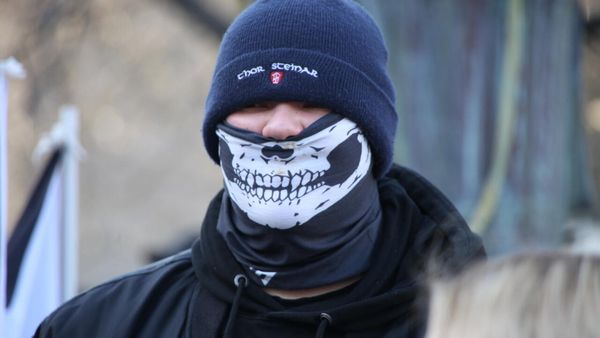
Rishi Sunak has insisted Brexit is working by citing cheaper beer and sanitary products, as he claimed the economy was looking up and people’s household incomes were “hugely outperforming” expectations.
Despite consumers struggling with high inflation and the cost of living crisis, the prime minister claimed there were “lots of signs that things are moving in the right direction” with the economy.
Rejecting claims from the former Ukip leader Nigel Farage that Brexit had failed under the Tories, he cited freeports, cutting VAT on sanitary products and reforming beer duty as major successes.
“Economic optimism is increasing, consumer confidence is increasing, growth estimates are being raised,” he told reporters on the way to the summit of G7 leaders in Japan.
He said official figures for real household disposable income growth had been “very pessimistic” but were now “hugely” better than predicted.
“That’s a very important measure of people’s living standards – hugely outperforming what people thought,” he said.
The Resolution Foundation said in March that typical household disposable incomes were on course to be lower by the end of 2027 than they were during the Covid pandemic, and last month Huw Pill, the Bank of England’s chief economist, said people needed “to accept” they were poorer.
Average living standards have been broadly stagnant since 2007. However, the latest figures for March 2023 showed a 1.3% increase in real household disposable income after four quarters of negative figures.
Sunak acknowledged things felt “tough” for families but highlighted the government’s contribution to energy bills.
He also defended the economic benefits of Brexit in the face of criticism that it has held back the economy and not brought promised prosperity.
“I introduced freeports – a Brexit benefit around the country attracting jobs and investment to lots of different places,” Sunak said.
“We cut VAT on sanitary products, we reformed the alcohol duties that mean this summer you will be able to get cheaper beer in pubs. These are all very tangible benefits of Brexit that I’ve already delivered.”
Sounding a positive note on the economy, he said two surveys of business leaders were showing “enormous confidence” in the UK.
“That’s what’s actually happening with the economy, that’s what global CEOs who actually have the money and are making investment decisions are saying,” he said, adding that he was “glad to have got that off my chest”.
Sunak acknowledged the UK was dealing with high inflation and elevated borrowing but said he was sticking to his aim to “reduce the tax burden” with tax cuts after dealing with those problems first.
The Institute for Fiscal Studies this week said one in five people would be caught in the higher rate of tax by 2027, leading to pressure on Sunak from his backbenchers to cut rates.
The prime minister’s assessment of the UK economy comes as he prepares to land in Tokyo for meetings with world leaders on the economy and defence.
He is expected to strengthen defence cooperation with Japan at a time of concern about China’s increasing militarisation and aggressive stance towards Taiwan.
Before the trip, the former prime minister Liz Truss inflamed tensions by visiting Taiwan and calling for a tougher stance on China and for it to join the Trans-Pacific Partnership.
But Sunak said he was not paying any attention to Truss’s trip and the UK approach to Taiwan was “longstanding and has not changed”.
He said western allies and Japan were “aligned” on their policy towards China, despite the US taking a tougher stance than some European countries. The French president, Emmanuel Macron, who is due to meet Sunak in Japan this week, said last month that Europe should not involve itself as a “vassal” in clashes between the US and China.







